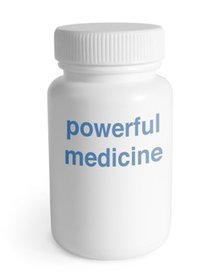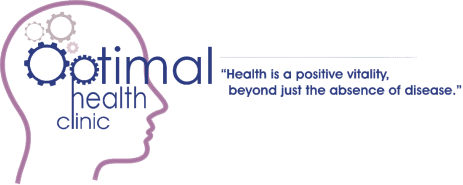
Not so long ago I felt rather negative about so called placebo effect. I have to admit I thought of it mostly as a fake treatment and something that should be discounted. Studying and practicing naturopathy and nutritional therapy changed my view and made me appreciate placebo effect and the mind-body connection more. There are several reasons why we may feel today the disconnection between mind and body. One of them is probably technical and scientific progress and the need to understand, dissect and be able to prove everything. Let’s see then what current science and research has to say about the placebo effect.
How does placebo work?
As I said earlier placebo is often understood as ‘fake’ treatment. Something that alters our perception but doesn’t actually cause any biochemical changes in our body. It turns out that it does. It can trigger release of endorphins in the brain just like some of the painkillers do. It can also influence hormonal balance and other processes in our body like immune system function. So the physical changes do occur and it’s not all in our mind only. What’s interesting the effectiveness is often comparable and sometimes higher than the conventional treatment including surgeries. Yes, they have done studies on placebo surgeries (spine surgeries, I believe) and the results where amazing. Can you believe it? This is based on the belief that we are going to get better as you usually hope after having a surgery. There is also another mechanism of how placebo may work. It’s based on the learned association (Pavlovian conditioning). If you took a drug in the past your body learned how to respond to it. Next time you take placebo it will try to respond in the same way. There is of course a question about ethics and using placebo, especially when we consider surgeries. Some experts say though that it would be unethical not to use it when it doesn’t produce side effects and has similar results. There is also something called ‘honest placebo’ being researched, when patients are aware of receiving placebo and interestingly they still experience benefits. It can work through learned association mentioned before or the fact that they feel looked after and receive support they need.
What can influence placebo effectiveness?
It’s really important how we feel about the treatment we are going to receive. We should trust and be confident in the practitioner, procedure or a drug. If we don’t feel it’s right for us we probably won’t benefit from it, at least not from the placebo effect. Working with a warm and emphatic practitioner, willing to spend more time with us gives also much better results. Cultural believes are also important as the research shows the response to placebo effect is much higher in some countries compering to others.
How can you take advantage of placebo effect in everyday life?
I hope it was useful and empowering to know more about the role of our mind and believes and their effects on our health. You can find more information in the Jo Marchant’s book ‘Cure: A Journey Into the Science of Mind over Body’, which I highly recommend. You can also listen to this interview with her by Chris Kresser.
How does placebo work?
As I said earlier placebo is often understood as ‘fake’ treatment. Something that alters our perception but doesn’t actually cause any biochemical changes in our body. It turns out that it does. It can trigger release of endorphins in the brain just like some of the painkillers do. It can also influence hormonal balance and other processes in our body like immune system function. So the physical changes do occur and it’s not all in our mind only. What’s interesting the effectiveness is often comparable and sometimes higher than the conventional treatment including surgeries. Yes, they have done studies on placebo surgeries (spine surgeries, I believe) and the results where amazing. Can you believe it? This is based on the belief that we are going to get better as you usually hope after having a surgery. There is also another mechanism of how placebo may work. It’s based on the learned association (Pavlovian conditioning). If you took a drug in the past your body learned how to respond to it. Next time you take placebo it will try to respond in the same way. There is of course a question about ethics and using placebo, especially when we consider surgeries. Some experts say though that it would be unethical not to use it when it doesn’t produce side effects and has similar results. There is also something called ‘honest placebo’ being researched, when patients are aware of receiving placebo and interestingly they still experience benefits. It can work through learned association mentioned before or the fact that they feel looked after and receive support they need.
What can influence placebo effectiveness?
It’s really important how we feel about the treatment we are going to receive. We should trust and be confident in the practitioner, procedure or a drug. If we don’t feel it’s right for us we probably won’t benefit from it, at least not from the placebo effect. Working with a warm and emphatic practitioner, willing to spend more time with us gives also much better results. Cultural believes are also important as the research shows the response to placebo effect is much higher in some countries compering to others.
How can you take advantage of placebo effect in everyday life?
- Seek treatments you feel good about and practitioners you bond with and are confident in. Engage in the treatment you are receiving, feel positive about it. If you feel reluctant, try to find something else you feel more comfortable about.
- Avoid nocebo effect. It’s when you are explained about the procedure and told it can hurt. And it most likely will because you believe/was told it was going to hurt. Or when you read the side effects list of the medication and do experience them even if you were in the placebo group. It’s been shown that people can experience 10 folds as many side effects if they know about them upfront. I’m not saying we shouldn’t read the leaflets or consent forms as it’s important to make informed choices. Once we do it lets try to pause and put the knowledge aside if possible. Once the treatment or consultation starts the focus should be on positives.
- If you do have to use medication maximise placebo effect. If you believe it’s going to help you it will probably help more. Placebo has been actually shown to be helpful in reducing serious side effects of immune-suppressants used it organ transplants’ patients or chemotherapy drugs. By taking placebo along the medication patients were able to respond to smaller dosages, reducing the amount of side effects.
- Use this knowledge when taking care of yourself and your family including kids. If you have to give them supplements (like fishy fish oil) or medication explain why they are taking it and how they can benefit from it. Don’t just say ‘It’s good for you’ or ‘You must take it’. When you take them for a blood test or any other procedure, explain what’s going to happen but don’t say it’s going to hurt just a little. It’s probably going to hurt less or at all if they don’t expect the pain.
I hope it was useful and empowering to know more about the role of our mind and believes and their effects on our health. You can find more information in the Jo Marchant’s book ‘Cure: A Journey Into the Science of Mind over Body’, which I highly recommend. You can also listen to this interview with her by Chris Kresser.

 RSS Feed
RSS Feed